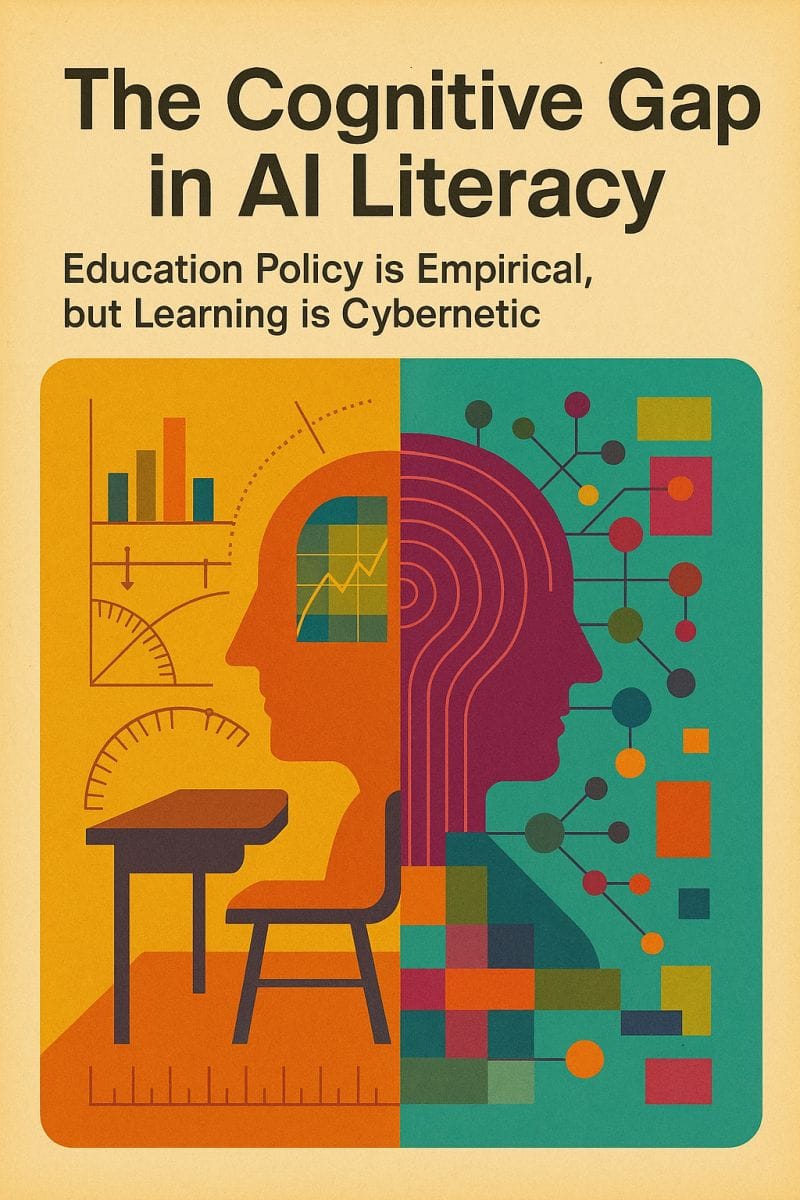The Cognitive Dissonance of AI Literacy: Education Policy is Empirical, but Learning is Cybernetic

As AI transforms education, it exposes a fundamental split in how we understand cognition. I call it a gap between an empirical model and a cybernetic model of cognition. The former sees learning as the accumulation of discrete knowledge, measured by outputs. The latter sees it as a recursive and relational process of meaning-making. Yet most education policy, AI integration, and AI literacy efforts continue to operate within the empirical view—often without realizing it. But in the age of AI, this unspoken assumption becomes a liability.
The empiricist view of learning emerged from the Enlightenment, where knowledge was grounded in sensory observation. Locke and Hume imagined minds as blank slates, awaiting input. This framework was institutionalized in 19th-century factory-style schooling—sequenced, standardized, and optimized for efficiency. In the 20th century, behaviorist psychology (e.g., Skinner) reinforced the idea that learning could be engineered through inputs and outputs. These logics persist in modern education policy, where accountability systems and “evidence-based” reforms reduce learning to what can be measured, flattening interpretation, context, and complexity.
The cybernetic mode of cognition, by contrast, challenges the premise that knowledge is static, extractable, and internal to the individual. Drawing from systems theory, second-order cybernetics, and embodied cognition, this mode sees learning as relational, contextual, and co-emergent. N. Katherine Hayles offers a crucial reframing: “cognition is a process that interprets information in contexts that connect it to meaning.” In this view, meaning is emergent, not delivered.
Hayles builds on Maturana and Varela’s theory of autopoiesis, Margulis and Sagan’s symbiogenesis, and Lovelock’s Gaia hypothesis—each modeling life as recursive interaction. Michael Peters' bioinformationalism and postdigital knowledge ecologies reimagines education as a recursive, relational, and ecologically situated process of knowledge formation. Robert Rosen’s relational biology along with Fields and Levin’s Reference Frame Theory show how biological systems generate dynamic internal models across space and time. Ilkka Tuomi extends these ideas into education, emphasizing the social and epistemic embeddedness of cognition resistant to empirical capture. And Rachel Horst situates AI literacy within machinic ecologies. This genealogy converges with Mark Hansen’s work on affective infrastructures, and the materialism of Barad, Haraway, and others who refuse the divide between knower and known.
To adopt the cybernetic mode is to rethink what learning is, what counts as knowledge, and how we participate in cognition. If AI changes how we write, read, and learn, then AI literacy programs must begin with how we think about learning and knowledge construction. Right now, they don't. And until they do, we will keep building the wrong systems.